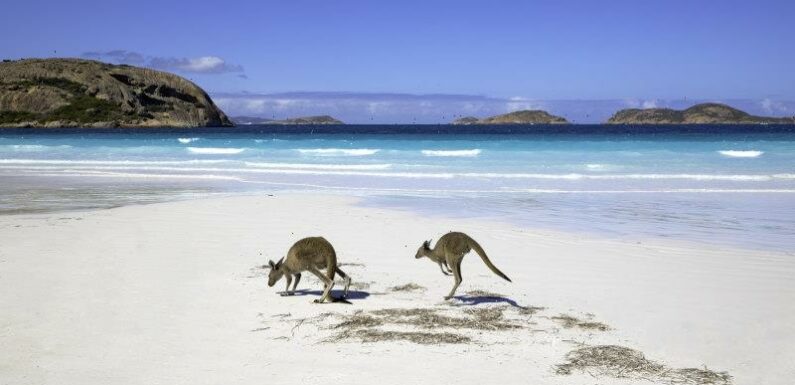
Do you use ocker language when you address someone? It’s a practice the nation seems to be divided on.
I am speaking, primarily, about the word “mate” which, for some of us, doesn’t feel quite right to use in everyday speech. It feels a little heretical or un-Australian to say so, but there it is.
Using the word “mate” can either feel natural or a little awkward.Credit:iStock
But I am not alone. While some people are in the camp of “I address everyone, from the prime minister to my garbo, as mate”, others abhor saying “mate” as twee, or too Strine, or fake. Or emotionally invasive.
I actually like the term. I love it when I hear other people use it. A colleague used to go up to a workmate and say, loudly and affectionately, “Maaaate…” It was fun, and it suited him.
But it feels awkward when I hear myself say it. It’s like a studious former prime minister Kevin Rudd uttering “fair shake of the sauce bottle”. Mate, it’s just not “me”.
My family and I aren’t posh. We speak in standard Australian, if not broad, Paul Hogan-style accents. We say “dairnce” not “dahnce”, and castle, as in the short “a” in match, not cahstle.
Paul Hogan.Credit:Paramount
But curiously, we’ve just not ever referred to people as “mate” or “hun” and we don’t say “thanks love” when buying ham at the deli.
Those terms have always sounded a bit alien to me.
I recently got a call from a stranger, someone I’d only spoken to briefly once, and was taken aback when he called me “mate” about five times.
To me, it was like he was saying “hello friend”, when we weren’t friends.
Maybe the reticence is a genetic emotional reserve from my English ancestors. (Admittedly that call was not as uncomfortable as the time an interviewee I had never met ran up and hugged me like a long-lost sister – she meant well, I’m sure.)
I used to see a paramedic character in a TV medical drama use “mate” on patients he was wheeling into the hospital and it grated on me. I’d tell the TV “that patient is not your mate!”
Also, “mate” used to be a term you’d hear more in nature documentaries.
And yes, terms like “mate” are a bit blokey for me, although I know some bonza – very down-to-earth – women who carry it off with aplomb.
Terms like “mate” are a bit blokey for me.Credit:AP
But even if you are in the “mate, I love using mate” camp, the rules on when to use the term have stretched. It can be used as much as a threat as a term of endearment.
These days you’re as just as likely to hear it between strangers in a violent road rage confrontation as you are between neighbours having a chinwag (although I’d never use chinwag in everyday speech – what a daggy word).
Yet, we are a nation divided – into those who do and those who don’t partake. I wonder what percentage of the population never use “mate”. I reckon half the people I know use it, and half don’t. But live and let live, I say.
When it’s not being uttered by an angry bikie wielding a weapon, “mate” can be warm and disarming, breaking down formal barriers. It’s handy as a form of address when you’ve forgotten someone’s name. And much like “like”, or “yeah, nah” it can be a ripper “filler” word.
Maaaate, there could be hope for me yet. I used to find “darl” or “hun” terribly fake and twee, but I’m coming around. I can see how it can be fun and endearing to hurl a “thanks love” back at the person.
I am chipping away, tentatively, with my ockerisms. I’ve started to use “G’day mate” or “Merry Christmas darl” to select people, as a private joke.
It’s a way of saying, “this is how old we are, that we’re talking like old bogans” or “you’re so familiar to me and loved that you’ll get that I’m joking”.
When I reach that level of acquaintance with someone, I know that they truly are a good friend. Or a mate, as all youse more dinky-di Strayans than me tend to say.
The Opinion newsletter is a weekly wrap of views that will challenge, champion and inform your own. Sign up here.
Most Viewed in Lifestyle
From our partners
Source: Read Full Article


